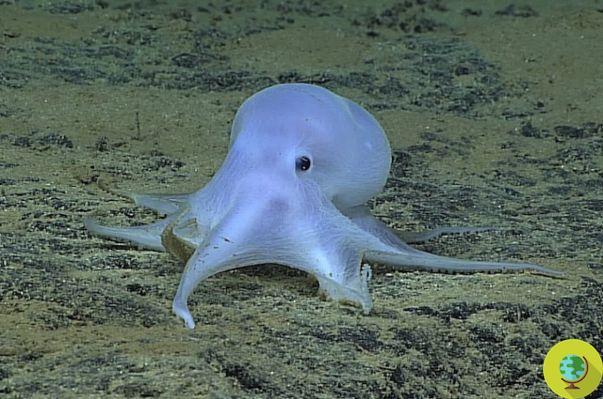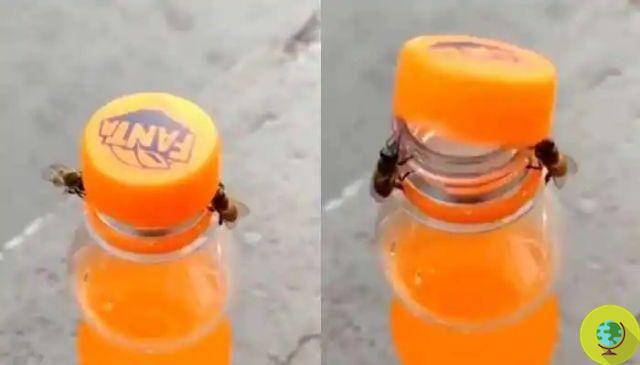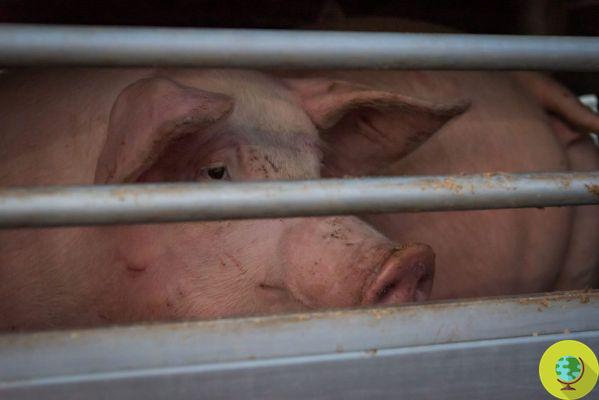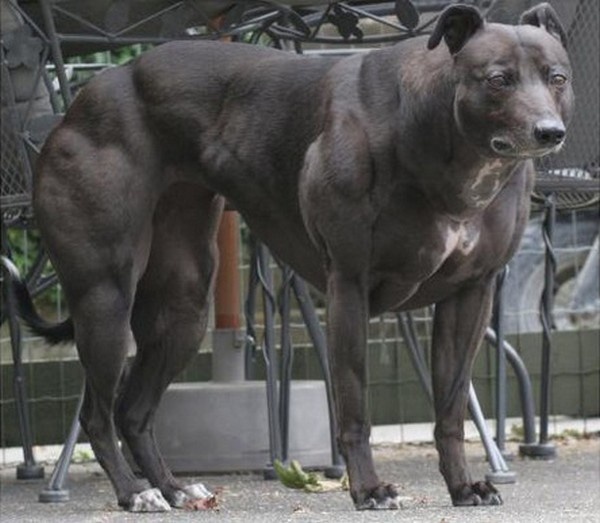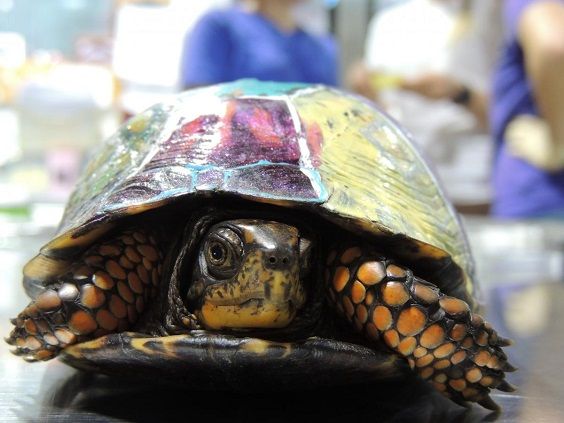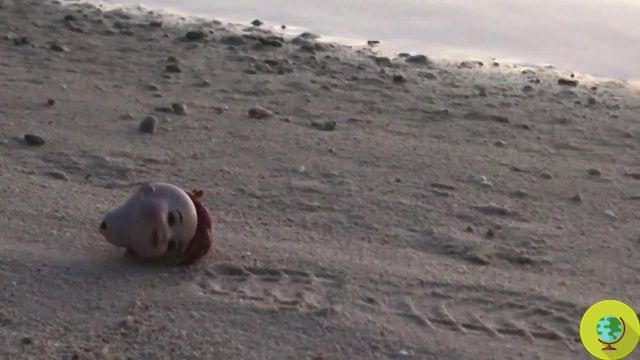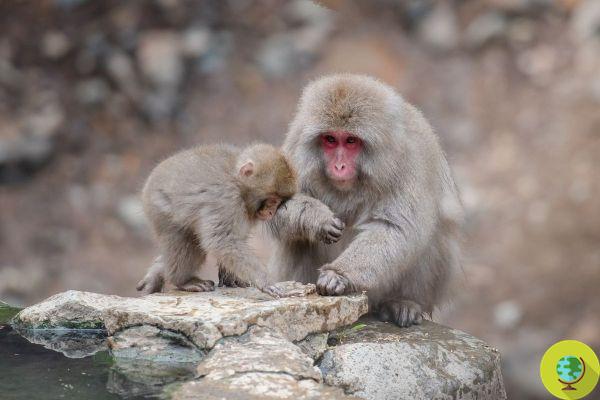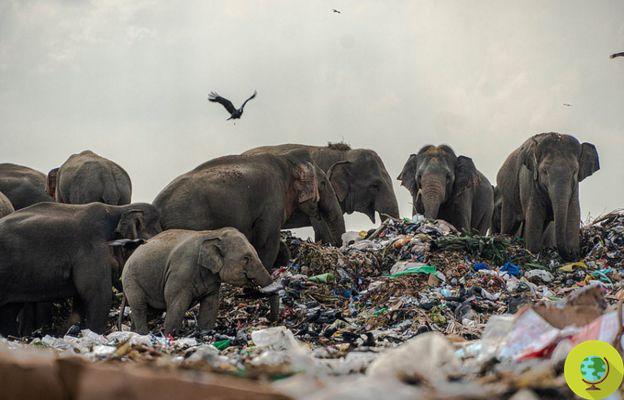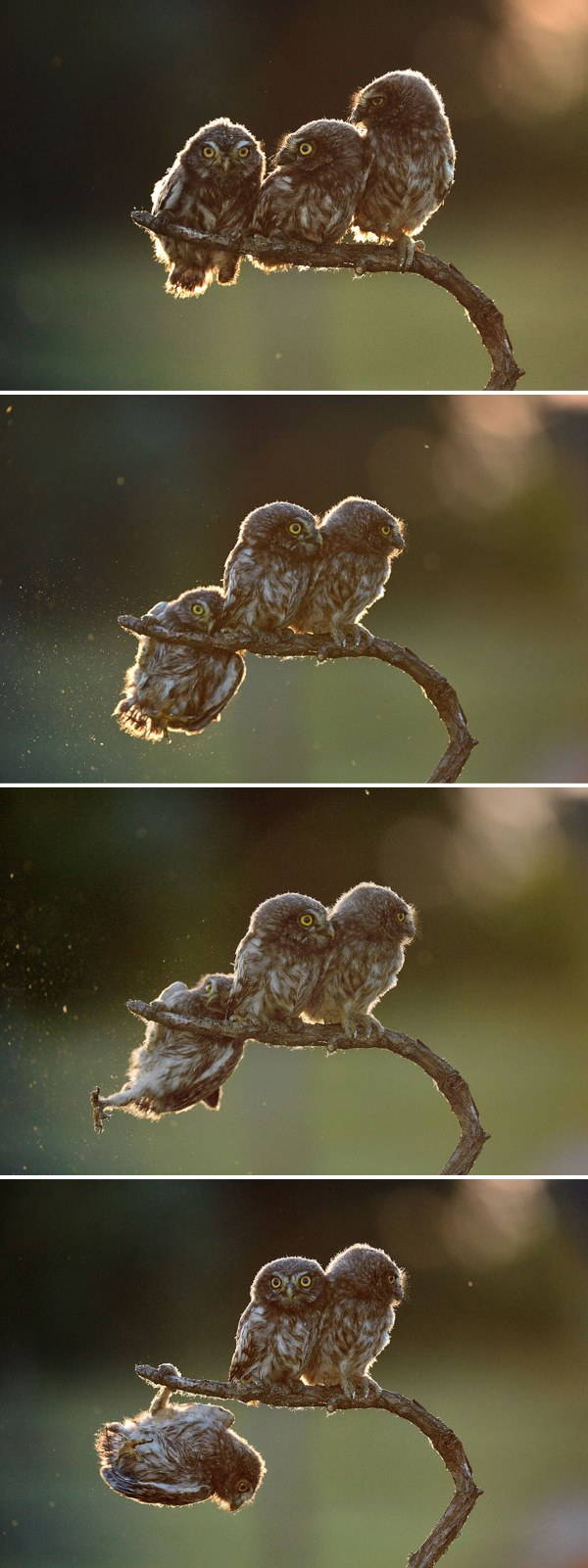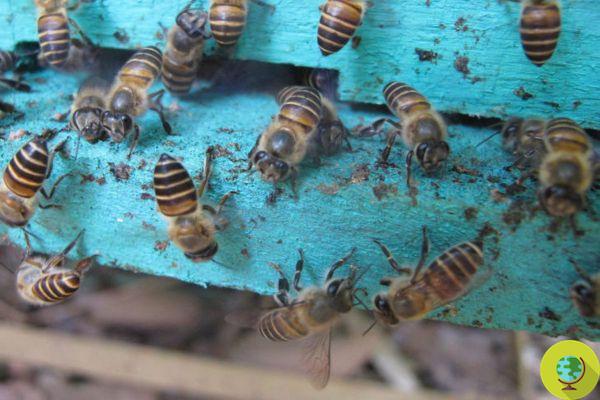
Honey bees also use other animals' feces as a chemical weapon to protect their hives from giant hornets
He is about to end up run over, his mother saves himSkilled, able to use any weapon to defend themselves. The honey bees they also use the feces of other animals as a chemical weapon to protect their hives from giant hornets. This is not a joke but the discovery that comes from a study conducted by researchers at Wellesley College.
Heather Mattila, associate professor of biological sciences at Wellesley College, saw it with her own eyes. The American scientist traveled to Vietnam, in the rural municipality of Ba Trai, 60 miles west of Hanoi. There, a member of her research team learned from a local farmer that bees had this "habit".
For the first time, an international team of researchers has managed to document that Asian honey bees (Apis cerana) feed on animal dung and then use it as a tool, a kind of chemical weapon, to defend their hives from attacks by the giant hornet (Vespa soror).
A systematic review
Since 2013, Mattila and colleagues have been studying interactions between giant hornets and Asian honey bees in Vietnam. Funded by the National Geographic Society's Research and Exploration Committee, the Vietnam Academy of Science and Technology, and the Knafel Chair in the Natural Sciences and Summer Research Program, the team conducted their field work in apiaries with colonies managed by local beekeepers and housed in wooden beehives.
First, the researchers wanted to confirm that honey bees collected animal dung, so they decided to document and quantify if and how they used it and what effect it had. The first step involved visiting local farmers. After observing the bees as they collected manure, Mattila and colleagues created a "manure buffet" next to their busiest study apiary.
After finding out that the dung was being collected by bees, the team set out to figure out how it was used. The answer? It was used to repel the attacks of the giant hornets.
"While more research is needed to determine exactly what properties of animal feces repel hornets, the barrier created by bees is an effective defense against their attacks," Mattila said. "Not only have we documented the first example of use of such tools by honey bees in nature, but the act of foraging faeces is another documented novelty for honey bees."
They routinely feed on materials produced by plants (such as nectar, pollen and resin), but until now it was not known that they swallowed solid waste produced by other animals. This is the first time they have been seen picking up solid pieces of dung, taking them home with their mouthparts, and applying them to the entrance to their nests (fecal stains).
"We documented that hornets were less likely to land on entrances or chew hives when there were more fecal stains around entrances," Mattila said in the study published in the journal PLOS ONE. "While more research is needed to determine exactly what properties of animal feces repel hornets, the barrier created by bees is an effective defense against their attacks."
The latter can wipe out entire colonies of honey bees, so the use of feces is a response to the tremendous predatory pressure they impose on honey bees.
The research has important implications beyond Vietnam: Recently, a similar species of giant hornet known as the "killer hornet" (Vespa mandarinia) was unintentionally introduced to North America and established populations in the US and other parts of the world.
A threat that adds to the already numerous that honey bees face all over the world, from poor nutrition to pesticides, from pathogens to habitat loss.
“Our study highlights the extent to which honey bees have to defend themselves against giant hornets. If giant hornets settle in North America, the threats honey bees face will be further exacerbated, ”Mattila said.
The professor and colleagues are now trying to figure out how Asian honey bees sound the alarm when giant hornets attack, using recordings made during the study. While fieldwork is difficult due to the pandemic, the team is sending samples to collaborators around the world to find out as soon as possible how hornets mark colonies for attack.
Sources of reference: Wellesley College, PlosOne
READ also:
- In the midst of the pandemic, the US faces another invader: "giant hornets" that exterminate bees, also dangerous for humans
- The Vespa velutina does not stop: the bee killer has also arrived in Genoa
- Bees: 4 surprising scientific reasons why humans cannot do without them







